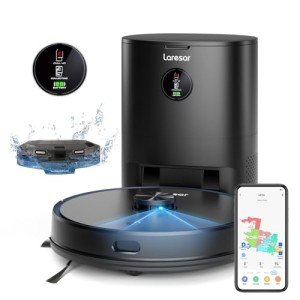Understanding Robot Vacuum Cleaner Prices: A Comprehensive Guide
In the last few years, robot vacuum cleaners have changed the method individuals clean their homes. Their ease of use, benefit, and advanced technology have actually made them progressively popular. Nevertheless, with a myriad of models and functions readily available, potential buyers frequently discover themselves asking a sixty-four-thousand-dollar question: What should I expect to pay for a robot vacuum cleaner? This article aims to clarify the expenses connected with robot vacuum, factors that affect their prices, and pointers for finding the right device for your budget.
The Price Range of Robot Vacuum Cleaners
Robot vacuum cleaners can differ widely in price. Here, we break down the common price variety for different categories:
| Category | Price Range | Description |
|---|---|---|
| Entry-Level | ₤ 100 - ₤ 250 | Standard functions, suitable for small spaces, minimal smart technology. |
| Mid-Range | ₤ 250 - ₤ 500 | Boosted cleaning capabilities, better navigation, some smart functions. |
| High-End | ₤ 500 - ₤ 1,000+ | Advanced mapping, effective suction, web connection, and app integration. |
Entry-Level Models
Low-priced robot vacuums are perfect for those who need a standard cleaning tool without high-end features. They typically deal with hard floorings well however may struggle with carpets and are usually less long lasting.
Mid-Range Models
These vacuums frequently come geared up with much better suction power and more intelligent navigation systems, making them appropriate for larger homes with mixed flooring. Numerous designs in this range offer Wi-Fi connectivity and smart device control.
High-End Models
High-end robot vacuums are created for severe cleaning enthusiasts. They typically provide advanced mapping technology, powerful suction, and integrated cams for boosted navigation. Furthermore, Vacuum Robot of high-end designs permit for vacuuming on a schedule and even have the ability to empty their dust bins immediately.
Elements Affecting Robot Vacuum Prices
Understanding the elements that can influence the price of a robot vacuum can help consumers make more informed buying decisions. The following list details some key features that can affect price:
- Brand Reputation: Established brand names typically bring a higher price due to their reputation and reputable consumer support.
Cleaning Technology:
- Suction Power: More powerful models will be more expensive.
- Navigation Systems: Advanced designs with much better barrier detection and mapping abilities cost more.
- Smart Features: Models that use connection to apps, voice control compatibility, and advanced scheduling choices tend to be priced greater.
- Battery Life: Longer-lasting batteries typically lead to a higher price, as they permit the vacuum to clean bigger locations without needing to charge.
- Dustbin Size: Larger dustbins can be more convenient for consumers, promoting a greater price point.
- Extra Features: Some vacuums offer mopping abilities, self-cleaning functions, and high-efficiency filters, which can increase their price.
Budget vs. Features: What to Consider
When buying a robot vacuum, it's necessary to weigh your budget versus the features you most desire. Here are several factors to consider to assist you make a notified decision:
1. Evaluate Your Home's Needs
- Size of Space: Larger homes might take advantage of advanced vacuums that can cover more ground without regular charging.
- Floor Types: If your home contains a mix of carpet and tough floors, go with a vacuum developed for both.
2. Determine Desired Features
- Decide which features are vital for you, such as scheduling, app connectivity, and cleaning modes.
3. Price vs. Durability
- While a greater investment can yield longer-lasting models, it's worth considering lower-cost options if you're uncertain about long-term usage.
Regularly Asked Questions (FAQs)
Q1: Are robot vacuums worth the financial investment?
A1: If you lead a hectic lifestyle or have mobility concerns, a robot vacuum can save significant time and effort in cleaning, making them a beneficial investment.
Q2: How frequently should I replace a robot vacuum?
A2: Depending on the design and usage, a robot vacuum typically lasts between 3 to 5 years. High-end models may last longer with appropriate upkeep.
Q3: Can a robot vacuum totally change a standard vacuum?
A3: While robot vacuums effectively manage everyday cleaning, they may not replace conventional vacuums for deep cleaning, especially in multi-level homes or locations requiring substantial care.
Q4: What is the average life expectancy of a robot vacuum?
A4: The life-span of robot vacuums varies by design, however most last between 3-5 years with regular upkeep, like dustbin emptying and filter modifications.
Q5: Do robot vacuums deal with carpets?
A5: Yes, however the efficiency will depend upon the model. Higher-priced models normally have much better suction power to tidy carpets successfully.
The market for robot vacuum cleaners is varied, with models to fit different spending plans and cleaning requirements. Whether customers are trying to find a fundamental cleaning tool or a sophisticated gadget geared up with numerous smart functions, understanding the price varieties and aspects impacting costs is important. With careful consideration of individual requirements and monetary constraints, prospective purchasers can discover a robot vacuum that will improve their cleaning routine and supply long-lasting satisfaction.

